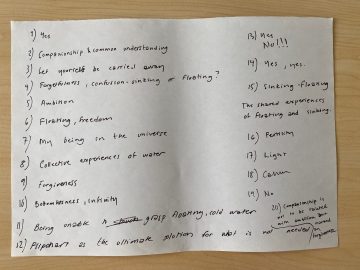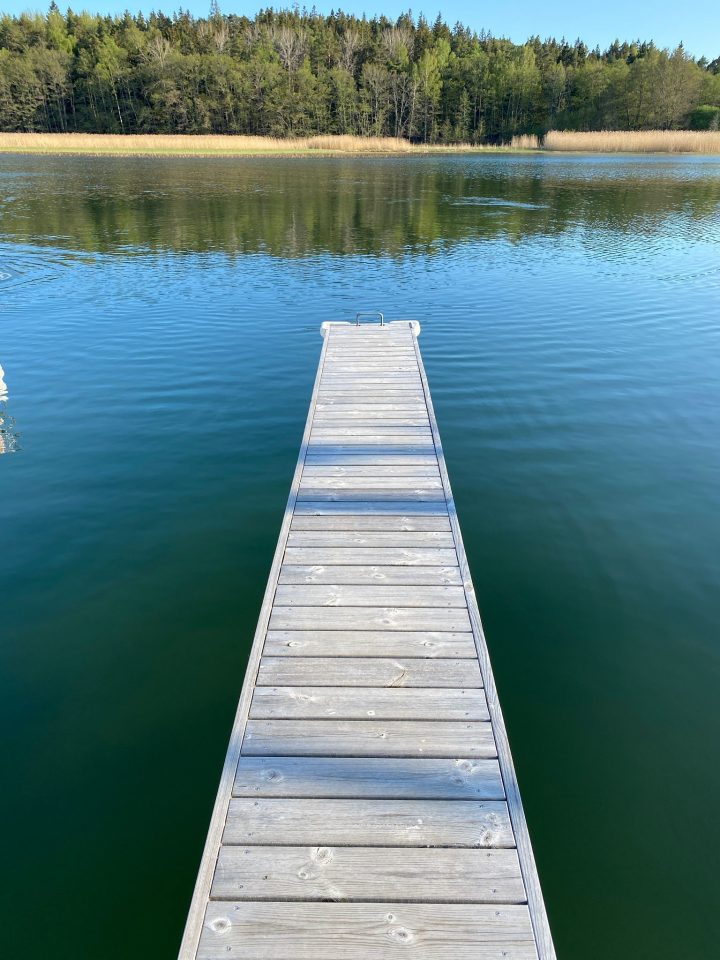Seili research retreat 2023
Law, Space and Justice research environment invited Professor Andreas Philippopoulos-Mihalopoulos to the University of Turku Archipelago Research Institute situated on the historic island Seili/Själö in the Finnish archipelago.
We were surrounded by water for four days (18-21 May), on an island that had served as a leprosy colony from 1619 to the end of 19th century, after which the location was repurposed as an asylum for “incurable psychotics” (more on the history of Seili here).
We engaged with creative methods of co-writing, performing legal materialities, wave writing, and lawscaping. People from the Faculty of Law seemed and felt relaxed in the setting, which allowed to play with not-so-usual methods of working and re-working the concepts of law, materiality, water, difference, contamination, exclusion, and so forth.
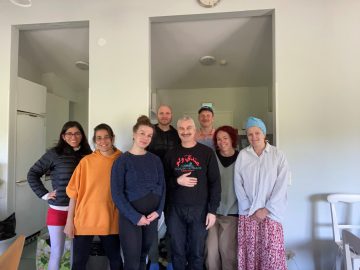 The Aalloilla group (Juho Aalto, Daniela Alaattinoglu, Yulia Dergacheva, Andreas Philippopoulos-Mihalopoulos, Aleida Lujan Pinelo, Amalia Verdu Sanmartin, Miriam Tedeschi, Mika Viljanen)
The Aalloilla group (Juho Aalto, Daniela Alaattinoglu, Yulia Dergacheva, Andreas Philippopoulos-Mihalopoulos, Aleida Lujan Pinelo, Amalia Verdu Sanmartin, Miriam Tedeschi, Mika Viljanen)
The creative writing led to the production of several textual experiments titled inter alia “There is no law I can’t swallow as a whole”. These ways of working “opened up” possibilities not only for scientific work but also “in-between” the participants. We started seeing and feeling each other differently, while witnessing unlikely behaviors encouraged by these creative methods.
On the first day, we experimented a creative writing exercise carried out after visiting the Seili church from 1733, which was built to give the God’s word as a form of pastoral care to the leprotic patients, along with other possible remedies for the illness, such as spring water and spirit.
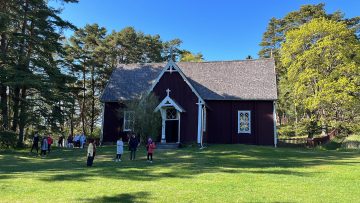
The exercise consisted in finding an interesting corner in the church, taking photo of it, and making up a story about it in connection with the island. The characters covered Torbjörn Bremer, Åbo-Britta, and cats taking care of the mice in the church. The stories turned out to be rather grim as the oppressive atmosphere on the island could be still felt.
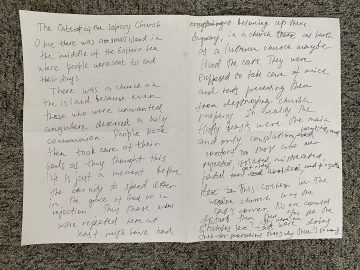
On the second day, we engaged with wave writing. It was extremely fun: we were divided into pairs and each pair got the task to choose a topic and a modality. The idea was to see how the agreed contents and forms would be affected in intra-action with the ones decided by the other pairs (the papers were circulated and each group continued the ‘story’ of another group, iteratively, in circles). The rythm and intensity of writing were shaped by a set of random instructions, e.g. how much time we had to write, how much, how we followed (or not) targeted messages written on pieces of paper
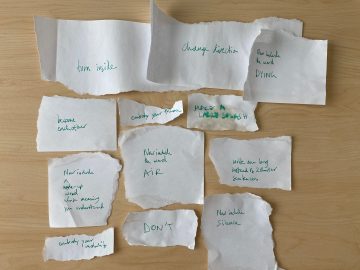
and given to each pair, how the documents were circulated between pairs. As a collective we ended up almost surprisingly producing two sets of codification of rules and story-like novels.
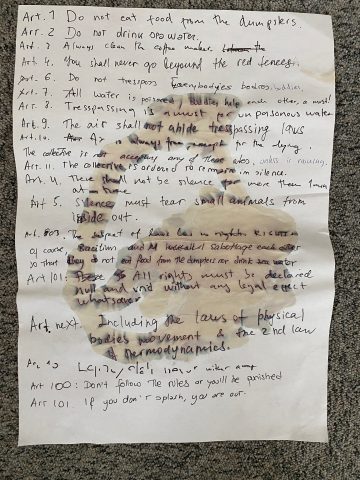
On the same day, we had a performance moment, where we would write on pieces of paper how we would feel about law (what does law mean for us)
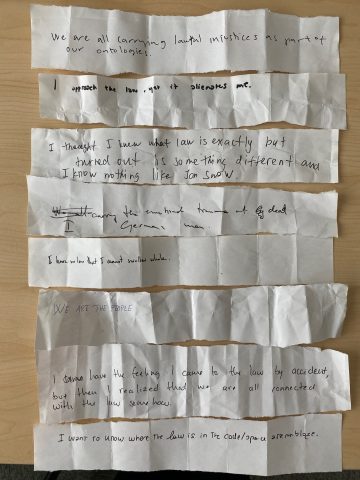
and, divided into groups, we would perform the sentences without using words.
We concluded the visit with a felt-sense game/exercise on water.
